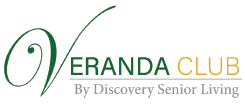Establishing a regular eye care routine is essential for maintaining vision and overall quality of life, especially in a retirement community. As you age, your eyes require more attention and care to stay healthy and function properly. This article will guide you through effective steps to incorporate into your daily routine, ensuring your eye health remains a priority.
Importance of Regular Eye Exams
Regular eye exams are a cornerstone of any effective eye care routine. As you age, the risk of developing eye conditions such as cataracts, glaucoma and Age-Related Macular Degeneration (AMD) increases. Annual visits to an ophthalmologist can help detect these issues early, allowing for timely treatment and management. Regular check-ups also provide insight into systemic conditions like diabetes and hypertension, which can affect your vision.
Managing Systemic Health
Maintaining normal blood pressure, cholesterol and glucose levels is crucial for eye health. Systemic diseases such as hypertension and diabetes can adversely affect the blood vessels in your eyes, leading to vision problems. High blood pressure can cause damage to the retina, while diabetes increases the risk of diabetic retinopathy. By managing these conditions through a balanced diet, regular exercise and medication, you can reduce the risk of eye-related complications.
Using Prescription Glasses
Wearing your prescription glasses as directed is an important part of your eye care routine. Most older adults require glasses for near and distant vision. Proper eyewear not only enhances your vision but also reduces the risk of falls and accidents. If you have low vision that does not improve with glasses, consult your ophthalmologist about low vision aids to maintain your independence and quality of life.
Protecting Your Eyes
Protecting your eyes from harmful ultraviolet (UV) light is essential. Overexposure to UV rays can increase the risk of cataracts and other eye conditions. When you are outdoors, wear sunglasses that block 100% of UV rays. Additionally, wearing a hat with a brim can provide extra protection. If you wear prescription glasses, consider lenses with a UV-protective coating.
Adopting a Healthy Lifestyle
A healthy lifestyle is fundamental to maintaining good eye health. Participating in a dining program that emphasizes leafy greens, whole grains, fruits and vegetables provides essential nutrients for your eyes. Foods high in antioxidants, omega-3 fatty acids and vitamins A and C are particularly beneficial.
Regular physical activity promotes good circulation and oxygen intake, which are vital for eye health. Activities such as walking, swimming and yoga are excellent for overall well-being and can be part of your health and fitness routine.
Avoiding Smoking
Smoking has numerous negative effects on your health, including your eyes. It significantly increases the risk of developing cataracts and AMD. Smokers are more likely to experience vision loss than non-smokers. Quitting smoking can have immediate and long-term benefits for your eye health, reducing the risk of these conditions and improving your overall health.
Preventing Falls and Eye Injuries
Preventing falls and eye injuries is an important aspect of your eye care routine. Always wear your prescription glasses to ensure clear vision and reduce the risk of tripping. Use protective eyewear when engaging in activities that could pose a risk to your eyes. Ensuring that your living space is free of hazards and well-lit can also help prevent accidents.
Addressing Common Age-Related Eye Issues
As you age, you may encounter specific eye issues such as dry eyes, presbyopia and floaters. Dry eyes can be managed with over-the-counter artificial tears and by staying hydrated. Presbyopia, or difficulty seeing close objects, can be corrected with reading glasses. Floaters, while common, should be monitored by an ophthalmologist, especially if accompanied by flashes of light or a sudden increase in number.
Staying Informed and Connected
Staying informed about eye health and participating in retirement community events focused on wellness can be very beneficial. These events often provide valuable information and resources on maintaining good health and can be a great way to stay engaged with your community.
By incorporating these steps into your daily routine, you can significantly improve your eye health and overall quality of life. Remember, taking proactive measures today can help ensure that you maintain good vision and independence in your retirement years. Make your eye care routine a priority and enjoy the benefits of healthy eyes for years to come.








